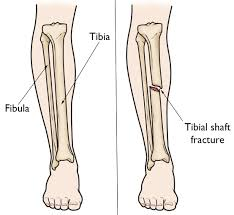A nurse is admitting a client to the surgical unit from the Post-Anesthesia Care Unit (PACU) following a cholecystectomy. Which of the following assessments is the nurse's priority?
Bowel sounds
Oxygen saturation
Surgical dressing
Temperature
The Correct Answer is B
Choice A reason:
Bowel sounds are an important assessment to determine the return of gastrointestinal function after surgery. However, they are not the immediate priority following a cholecystectomy. The nurse will monitor bowel sounds to assess for ileus or obstruction, but this comes after ensuring that the patient's vital signs are stable.
Choice B reason:
Oxygen saturation is the priority assessment for a client being admitted from the PACU following a cholecystectomy. Ensuring adequate oxygenation is crucial after anesthesia, as respiratory function can be compromised. Monitoring oxygen saturation helps to detect hypoxemia early and prevent respiratory complications.
Choice C reason:
Inspecting the surgical dressing is necessary to check for signs of bleeding or infection at the surgical site. However, this is not the first priority upon admission from the PACU. The nurse will assess the dressing after vital signs and oxygen saturation have been addressed.
Choice D reason:
Temperature is an important vital sign that can indicate infection or other postoperative complications. However, the immediate priority is to ensure the client's airway and breathing are adequate, which includes assessing oxygen saturation before temperature.
Nursing Test Bank
Naxlex Comprehensive Predictor Exams
Related Questions
Correct Answer is C
Explanation
Choice A reason:
While explaining discharge instructions is an important part of patient education and ensuring safety after leaving the hospital, it is not the immediate priority. The nurse must first address any potential medical issues that could compromise the patient's health, such as circulation and nerve function in the affected limb.
Choice B reason:
Applying an ice pack to the casted leg can help reduce swelling and provide comfort to the client. This is often recommended for the first 24 to 72 hours after the cast is applied, especially if the cast is on a leg. However, this is secondary to assessing the neurovascular status of the limb.
Choice C reason:
Performing a neurovascular assessment is the priority action for the nurse. This assessment includes checking for sensation, warmth, capillary refill, pulses, and movement. It is crucial to identify any signs of compromised blood flow or nerve injury early to prevent further complications.
Choice D reason:
Providing reassurance to the client and parents is important for emotional support and can help alleviate anxiety. However, the nurse's immediate priority is to ensure the physical well-being of the client, which includes performing a neurovascular assessment to detect any urgent issues.

Correct Answer is A
Explanation
Choice A reason:
Weight loss is a common finding in individuals with uncontrolled type 1 diabetes mellitus. Due to the lack of insulin, the body cannot utilize glucose effectively, leading to the breakdown of body fat and muscle for energy, resulting in weight loss.
Choice B reason:
Hematuria, or blood in the urine, is not a typical finding associated with uncontrolled type 1 diabetes mellitus. While diabetes can cause kidney damage over time, leading to proteinuria, hematuria would not be an expected finding solely due to uncontrolled diabetes.
Choice C reason:
Bradycardia, or a slower than normal heart rate, is not a common finding in uncontrolled type 1 diabetes mellitus. In fact, diabetes can sometimes cause autonomic neuropathy, which can affect the heart rate, but this typically does not result in bradycardia.
Choice D reason:
Hypertension is more commonly associated with type 2 diabetes mellitus, often due to insulin resistance. In type 1 diabetes, especially when uncontrolled, hypertension is not a typical finding unless there is coexisting kidney damage.
Whether you are a student looking to ace your exams or a practicing nurse seeking to enhance your expertise , our nursing education contents will empower you with the confidence and competence to make a difference in the lives of patients and become a respected leader in the healthcare field.
Visit Naxlex, invest in your future and unlock endless possibilities with our unparalleled nursing education contents today
Report Wrong Answer on the Current Question
Do you disagree with the answer? If yes, what is your expected answer? Explain.
Kindly be descriptive with the issue you are facing.
